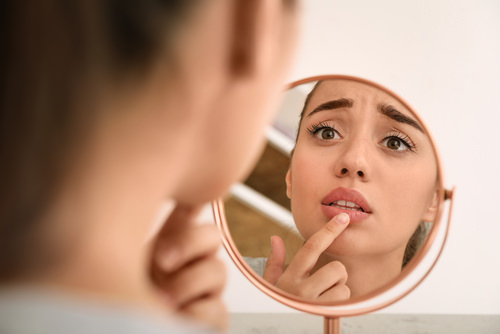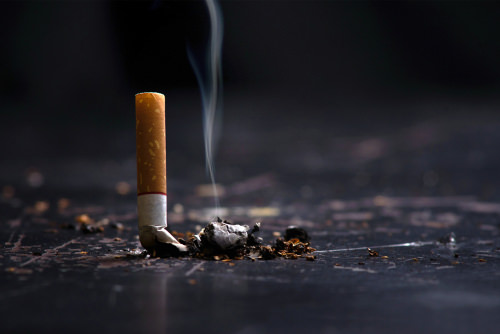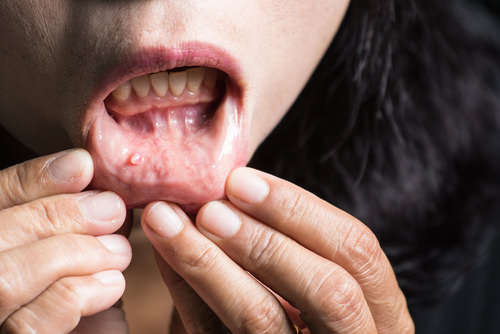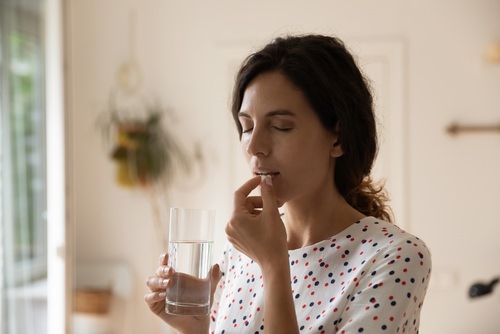Are you struggling with tiny bumps on your lips that feel like sandpaper? There is no need to worry. Read this article to learn everything about the causes, potential treatments, and precautions.
Tiny bumps on your lips that feel like sandpaper are due to labial keratosis. It is a common condition that affects many people, and you can treat it with over-the-counter medications or prescription treatments. This article will discuss the causes of labial keratosis and the various treatment options available. Moreover, we will provide tips for preventing this condition from occurring in the first place.
What Are Bumps On Lips?
A variety of things can cause bumps on lips. They may result from an infection, an allergic reaction, or a condition called labial keratosis. Labial keratosis is an ordinary condition that causes tiny bumps to form on the lips. These bumps can feel like sandpaper, and they may make it challenging to wear lipstick or lip balm. The good news is that labial keratosis is not contagious and is usually not painful.
What Causes Labial Keratosis?
There are a few different things that can cause labial keratosis. One of the most common causes is exposure to the sun. People who spend a lot of time outdoors are more likely to develop this condition. Other factors that may increase your risk include:
1. Using Tobacco Products
Cigarettes, cigars, and chewing tobacco can irritate the lips and contribute to the development of labial keratosis.
2. Dry Weather
If the air is dry, it can cause the lips to become chapped and irritated, leading to the formation of bumps.
3. Having Fair Skin
People with fair skin are more susceptible to the effects of the sun. It means that they are more likely to develop labial keratosis.
4. Using Certain Medications
Some medications, such as corticosteroids and retinoids, can make the lips more sensitive to the sun. Therefore, it increases the risk of developing labial keratosis.
5. Age Factor
The risk of developing labial keratosis rises with age, therefore, middle-aged or older people are more likely to develop the condition than the younger population.
6. Oral Herpes
This virus can cause sores on the lips and cause discomfort and pain. People with oral herpes are more prone to develop labial keratosis because the lips are already susceptible to damage.
7. Oral Thrush
It is a fungal infection that affects the tongue and can cause bumps on the lips.
8. Perioral Dermatitis
This is a skin condition that can affect the skin around the lips as well. It might not lead to bumps but it can cause the development of spots on the lips.
9. Mucoceles
These are small, benign growths that can form on the inner parts of the mouth. Moreover, if proper care is not done, it can impact the lips as well.
Conclusively, the tiny bumps on your lips that feel like sandpaper result from the above list of factors and conditions that cause and make you more susceptible to labial keratosis.
How Is Labial Keratosis Treated?
There are a few different ways to treat labial keratosis. One option is to use over-the-counter medications, such as retinoids or alpha hydroxy acids. These products can help to exfoliate the lips’ skin and remove the bumps. If these treatments do not work, you may need to see a doctor for a prescription treatment. Prescription treatments may include:
1. Creams
You can apply over-the-counter creams and exfoliators to exfoliate the skin of the lips and aid in the treatment of the bumps.
2. Oral Medications
In case you visit a medical practitioner for the condition, they may prescribe some oral pills to subside the condition.
3. Laser Therapy
Although experts recommend laser therapy in severe and extreme conditions, it is the surest and fastest procedure to remove the bumps.
How To Prevent Labial Keratosis?
Although there are treatments available that can help to improve this annoying and uncomfortable situation, there are a few things you can do to prevent labial keratosis:
1. Shield Your Lips From Direct Exposure To Sun
One of the most important things is to protect your lips from the sun. It means wearing sunscreen on your lips every day, even when it is cloudy outside. You should wear a lip balm or sunscreen with an SPF of at least 30. If you are going to spend a lot of time outdoors, you should wear a hat or a scarf so that it protects your lips from the sun.
2. Avoid Tobacco Products
Tobacco can irritate the lips and contribute to the development of labial keratosis. Therefore, you should consider quitting tobacco products if you use them.
3. Stay Hydrated To Retain Moisture
Dry lips are more likely to become chapped and irritated, which can lead to other severe conditions. It’s always great to maintain the fluid intake that the body requires to avoid the formation of bumps.
Since precaution is always better than cure, these preventive measures are pretty handy if you want to dodge this troublesome situation.
When To Seek Medical Help
If the bumps on your lips are accompanied by other symptoms like fever, rash, or pain, then seek medical attention. Moreover, if you have diabetes, cancer, or HIV/AIDS, you should closely monitor any changes in your lips and seek medical help if necessary.
Treatment for the bumps on your lips will vary depending on the underlying cause. In some cases, home remedies may be enough to resolve the issue. However, more severe conditions may require medications or other treatments.
Lastly, the tiny bumps on your lips can be scary, weird, and irritating. So if you’re concerned about the rough bumps on your lips, it’s best to consult with a medical professional as they will guide you further to get a proper diagnosis and treatment plan.
The Bottom Line
Do you feel like having tiny bumps on your lips that feel like sandpaper? If so, you’re not alone. A build-up of dead skin cells often causes this condition, and many people experience it.
Exfoliating your lips regularly can help remove the dead skin cells and prevent the bumps from returning. You can gently use a lip scrub or a toothbrush to exfoliate your lips. However, be careful and moisturize your lips after exfoliating to give them enough hydration.
Moreover, if you have chronic dryness or inflammation of the lips, you may need to see a dermatologist for treatment. Treatments for dry lips include using a humidifier, applying lip balm or Vaseline, and avoiding licking your lips.






